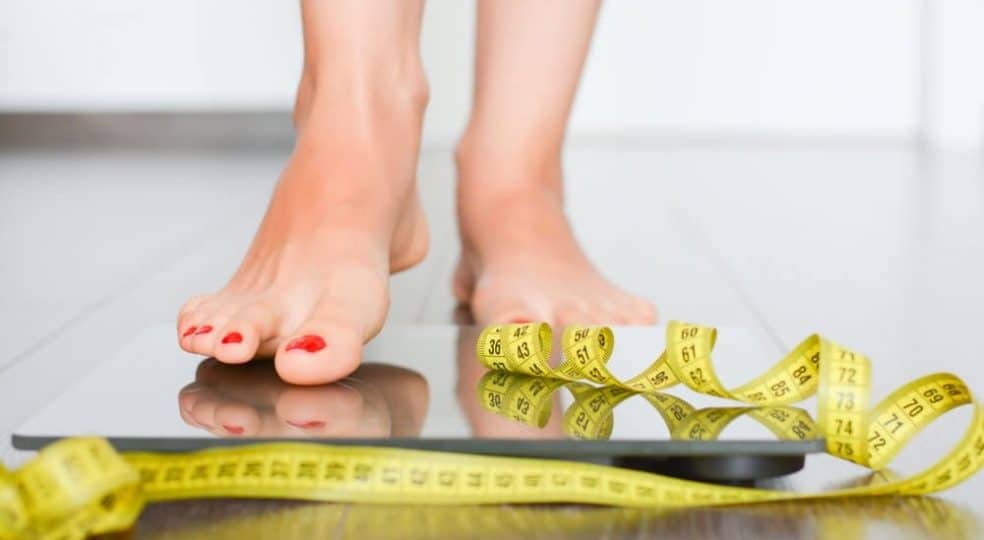
Whether on Facebook, Instagram or the covers of popular fashion and lifestyle magazines, you see them everywhere: Women and men with supposed ideal weights. From skinny to chubby, from athletic to beefy - the ideal image of the supposed ideal weight is omnipresent.
But does a skinny model really have an ideal weight? Or a muscular bodybuilder? What is the ideal weight? And how does the ideal weight differ from the feel-good weight? So many weighty questions and a lot of exciting answers. We clear up!
In our search for the ideal weight, let's first take a look at the dictionary. Duden online defines ideal weight as "a body weight that is slightly below a person's normal weight and is considered ideal". Aha! Sounds somehow but still not very concrete and leaves a lot of room for interpretation, right?
That's right, because there is of course no universal weight that applies equally to everyone. Instead, everyone has their own individual ideal weight based on their height and build. It can be calculated using various methods. More on this later! First, let's take a look at why it's important to know your ideal weight in the first place.
In this day and age, physical extremes seem to be colliding: While, unfortunately, many designers still send spindly models down their catwalks, the average population continues to gain weight. Never before have so many adults been overweight and the number of overweight or even obese children and teenagers is also on the rise. No wonder, because the great oversupply of (unhealthy) food is high and the working life of many people takes place at a desk. Move comes thereby clearly too briefly - the one or other Kilo for it all the faster on the Hüften.
The bad thing about being overweight is not an aesthetic issue, but a health issue. To put it in a nutshell: Our society is eating itself sick! And the health risks are serious: Strokes, heart attacks and diabetes are just a few of the many diseases that can result from being overweight.
To avoid this, you should learn about the number at which the excess kilos become harmful to health. The same applies, of course, for underweight, which is Health can become just as risky as being overweight. In order to be neither underweight nor overweight, but to find a good middle ground, it is worth calculating your ideal weight. In the following you will learn how to do it!
There are numerous methods to calculate your ideal weight. Some have been established over the years, others have not. A real classic among the methods of calculating the ideal weight is the Body Mass Indexor BMI for short. All the information you need is your weight, height and gender - but you should know that. So once you've stepped on the scale and measured your height, divide your weight by your height squared. The actual formula is:
Weight in kg / Size in m2 = BMI
This way, you'll get a number that tells you your body mass. For women, a BMI of 19 is considered the lower range of ideal weight, a BMI of 24, on the other hand, as the upper range. Men are in the lower ideal range with a BMI of 20 and in the upper range with a BMI of 25. All BMI numbers between 19 and 24 for women and 20 and 25 for men are within a healthy range. If your BMI is below or above the guideline values, you should take a closer look at your values.
Of course, BMI is also not a nail-biting guarantee that your weight is healthy or unhealthy. In addition, the body mass index does not take into account special features such as very well-trained, muscular bodies of athletes. Muscles are known to be heavier than fat, which drives up the BMI of these people.
Since BMI does not take into account a person's body fat percentage or their distribution of fat, it cannot be applied to all people. Athletes who have built up a high muscle mass could therefore be classified as overweight by the body mass index, which of course does not correspond to reality. The criticism of the body mass index is therefore justified. Nevertheless, in many cases it serves as a Guide value for orientation and offers the advantage that it is relatively reliable and easy to calculate for normally built and averagely athletic people.
Basically, a person's ideal weight does not necessarily have to correspond to their feel-good weight. While some people don't mind a few extra kilos, others strive for a well-toned silhouette. That's perfectly fine, after all beauty is in the eye of the beholder.
Much more important than a flawless BMI in the ideal range is that you regularly get enough exercise and keep your cardiovascular system fit. Whether with endurance or strength training is relatively unimportant - the main thing is that you keep moving. Combine this with a healthy, well-balanced diet and you'll be Nutritionit will not take long until you reach your ideal weight and your personal feel-good weight.
At the end of the day, it's about feeling good in your body. You don't need to be influenced by formulas and tables. And you certainly shouldn't be guided by social standards and general ideas of the ideal weight. All that matters is that your weight is not detrimental to your health and that your body is fit and balanced. As long as this is the case, your weight is ideal!

